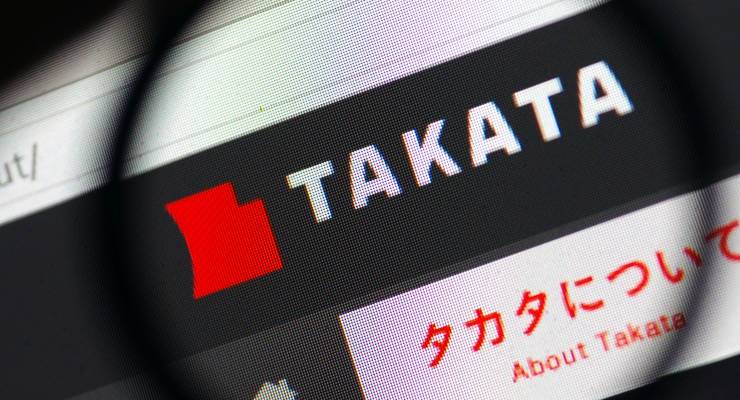
Nine months before a Sydney man was killed by a faulty Takata airbag, the Australian Competition and Consumer Commission (ACCC) was warned by one of its own senior officials that “long and unnecessary delays” in the commission’s handling of the airbag recall posed a risk to the public.
The consumer safety official sent his formal warning via an internal ACCC whistleblowing process in October 2016, Inq can reveal.
A young Darwin woman was also severely injured as the result of a Takata airbag explosion in April 2017. She is now blind in one eye and has lifelong brain injuries.
The whistleblower, who we’re calling WB2, listed the Takata airbag recall as one of half a dozen examples which demonstrated failures in the ACCC’s product safety division.
“I was there at the time when they were ruminating on the Takata airbag and I couldn’t understand why they didn’t at least move forward to get more facts and information about it. If there’s a reason to not act, that’s fine but if you don’t even do the work to get to that point then you can’t take any action,” WB2 tells Inq.
“It was very clear when I put in my Public Interest Disclosure that I was talking about a systemic failure and I certainly gave them every bit of information to make them realise it was a widespread collapse of the [consumer safety] function.”
Another example quoted by WB2 was a faulty Thermomix kitchen unit, where the ACCC had failed to act until an investigation by CHOICE magazine revealed that close to 50 people had received burn injuries. The Federal Court subsequently fined Thermomix more than $4 million for misleading and deceptive behaviour.
WB2, like WB1 in our previous story, had made his feelings known about the changing culture at the ACCC, which made him a marked man before he got to the point of making a Public Interest Disclosure. That disclosure went to the executive level of the ACCC and was outsourced to an independent investigator, who found WB2’s claims to be unfounded. So nothing changed.
“In the act of trying to fix the problems I signed my own death warrant,” he says. WB2 expected he would be dismissed as a troublemaker or as a disgruntled employee — which, he says, was “the obvious thing to do”.
So why did he blow the whistle?
“I think as I say to my kids, sometimes you just have to be able to live with yourself and not just for yourself. I didn’t feel that at any point I was going to benefit from it personally. It was really a matter of my own conscience. My motivation was that this is wrong. It should be better and could easily be better.”
The Public Interest Disclosure (PID) scheme began in 2014 as a way of encouraging whistleblowers to make their claims internally and without fear of reprisals. According to the Commonwealth Ombudsman’s annual report, there were 289 PID investigations in 2018/19 with around half recommending action of some sort.
WB2, who was at the end of a long public service career that included 20 years in safety regulation when he reached the end of the line with the ACCC, believes that the impact of the scheme is to channel criticism “away from the public gaze and identify and quarantine troublemakers”.
He says he was at a stage of life where it “wasn’t catastrophic” to do what he did, even though he believes the near certainty of reprisals means it isn’t a worthwhile step for most employees.
“It’s very gruelling. Probably at the very best you’ll be sidelined somewhere in some backwater and not go anywhere further, and more likely it will be worse than that.
“It’s a shame, because the point of the PID Act is to improve the performance of the public service. People who speak up should be embraced as people who care and should be dealt with as an asset.”
Faced with a punitive approach towards whistleblowers who go to the media, and freedom of information laws that seem barely functional, WB2 believes the best avenue for a public servant now is the political process.
“Feed things into senate estimates or to the shadow government if you really want to put the light on something you think is wrong,” he suggests. “It could be much more effective and will protect you more than doing a PID.”








Good advice from WB2, and I reckon he is right that LNP legislation to protect whistleblowers is actually being used to attack them.
More power to WB2 and heroes of his calibre – and may the fleas of a thousand camels attack Porter’s crotch a treat.
The question that Hardaker ought to have addressed (but failed to do so) is : ‘are the proceedings here unusual or systemic of government in general’? Is it the case that agency management is more or less incompetent (in which case recruitment policies need to be overhauled) or do work-place factors exist that prevent necessary (indeed obvious) action?